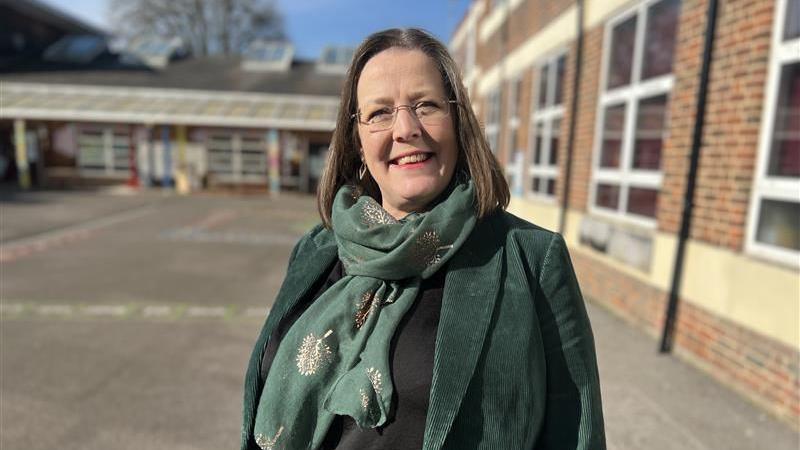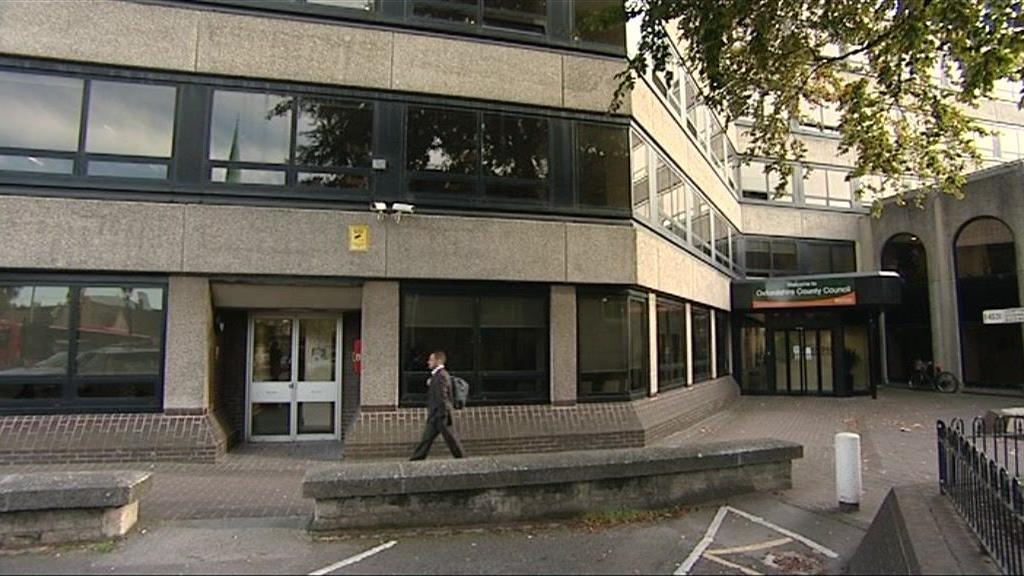How can councils tackle the SEND funding gap?

Oxfordshire County Council is looking at ways of bringing down its SEND spending by supporting more children with additional needs in a mainstream setting.
- Published
A local authority is planning to support more children with special educational needs and disabilities (SEND) in mainstream schools, to reduce spiralling costs.
Oxfordshire County Council will expand its enhanced pathways provision into 40 state schools, providing a dedicate space and additional resource to support more young people with special needs, including non verbal children, in a mainstream setting.
Oxfordshire County Council is forecast to have a high needs funding deficit of £153 million by next year.
The council says it needs to find new solutions to address the imbalance between government funding and local demand.

Councillor Sean Gaul says clarity needs to be given on how the council's growing high needs deficit will be paid off.
According to the County Council's Network, local authorities are forecast to have a yearly overspend of £4.4 billion in special educational needs and disabilities (SEND) by 2029.
This is an amount, approved by the government and kept off the councils' books, giving authorities the flexibility to keep providing SEND services while discussions around reforming the system are ongoing.
But with no clarity about who will be responsible for paying off this debt, councils are concerned they'll face bankruptcy if they are held accountable.
Councillor Sean Gaul, Oxfordshire County Council's cabinet member for children's services, said, "we need government to come forward with a plan about how we're going to address the deficit. Allowing it to build up in an override account, without anybody being clear about who is going to cover this, is not an answer."
The council has been working on improving its SEND services following an Ofsted report In 2023 which found it was failing SEND families. But last week, after a monitoring inspection, the authority was judged to be taking "effective action" to improve its provision.
But costs for delivering the service have continued to rise.
The costs
On average, it costs councils around £10,000 each year to teach a child in a mainstream setting.
This number rises to £24,000 for children attending a state-funded special school.
But with demand for these places outstripping the number available, councils are increasingly placing children with SEND in private special schools, at a cost of £64,000 per child each year.
Councils also fund the transport to and from these more specialist settings, adding to the rising costs.
Mr Gaul says that reducing the council's reliance on private special schools, and the "enormous" costs involved, will allow more funding to go into mainstream schools.
The authority has also committed to providing an additional 240 state funded special school places, with the intention for 100 more, to reduce the number of children being taught in more expensive settings.

Paul James, chief executive of the River Learning Trust, says inclusive teaching is only possible with more funding for mainstream schools.
Leadership and inclusion
According to Oxfordshire County Council, teaching children in a more inclusive setting can only work when schools have the necessary leadership and ambition to take on the additional responsibilities.
Paul James, chief executive of the River Learning Trust, agrees. He's responsible for 31 schools in Oxfordshire and Swindon and says strong leadership is key if more SEND children are being taught in mainstream settings.
But Mr James said "inclusive leadership and teaching" cannot be done without additional funding for mainstream schools.
"The government are really clear that they've invested more in special educational needs year on year, but it doesn't reflect the actual costs per pupil funding, so that gap has grown," he said.
This has led to schools needing to make cuts to support staff, teaching assistants, curriculum resources and enrichment.
Mr James said children "only get one go" with their education and that partners need to work "collaboratively and effectively right now" rather than wait for government action on SEND reform.
Get in touch
Do you have a story BBC Oxfordshire should cover?
You can follow BBC Oxfordshire on Facebook, external, X (Twitter), external, or Instagram, external.
Related topics
- Published3 days ago

- Published11 September

- Published2 August

- Published20 March

- Published20 June
